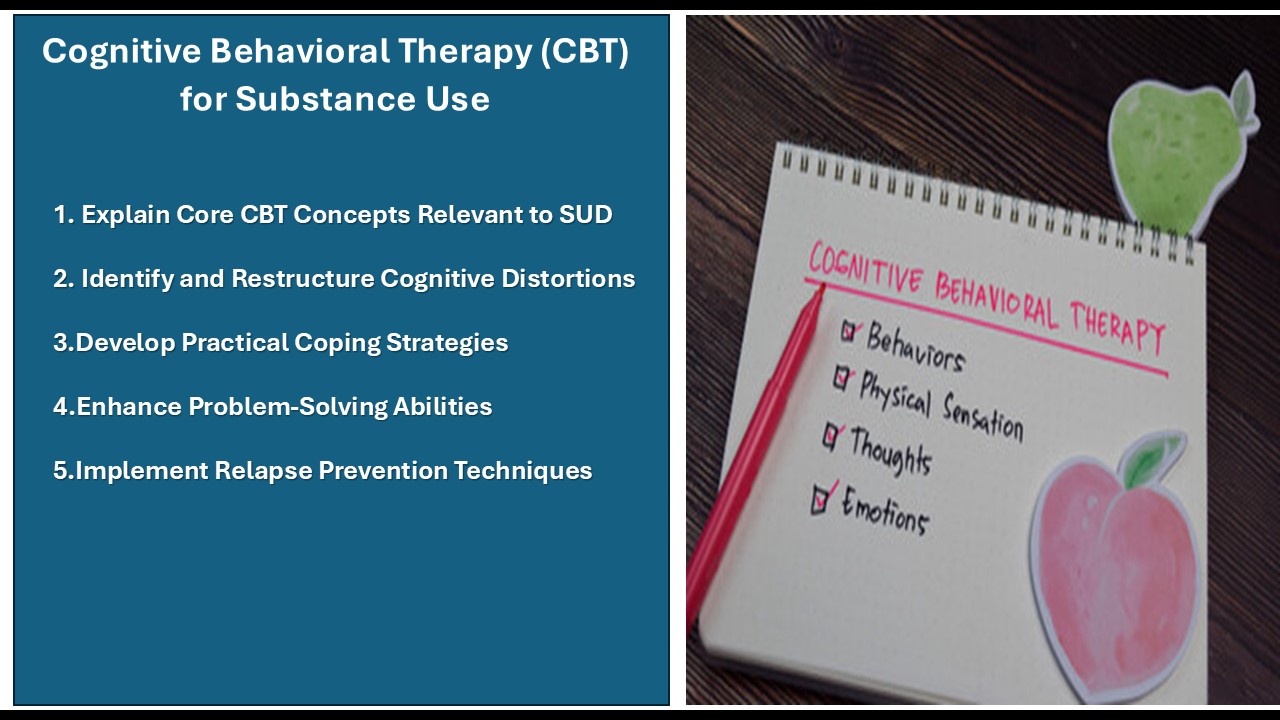The study of how addictive substances, including alcohol, opioids, stimulants, and cannabis, interact with the brain and body, leading to dependence and addiction.
The Pharmacology of Addictive Substances
Training Description:
Pharmacology of Addictive Substances In this training, counselors learn about the most commonly misused substances,
including alcohol, opioids, stimulants, and cannabis—and the neurochemical processes that underlie their effects.
Discussions include withdrawal syndromes, toxicity risks, and how these substances interact with the brain and
body. Counselors will emerge with an enhanced ability to recognize substance- specific presentations, educate
clients about the physiological impact of these substances, and guide more informed treatment planning. Scroll to
the middle of the page to access training and additional resources.
- Explain the Pharmacological Mechanisms of Commonly Abused Substances
- Distinguish Substance-Specific Effects and Presentations
- Recognize Withdrawal Syndromes and Toxicity Risks
- Educate Clients on the Physiological Impacts of Substance Use
- Apply Pharmacological Knowledge to Tailored Treatment Planning
Course Learning Objectives
This is a web-based self-paced training which provides 2 hours substance specific
board approved hours. The content for this project has been curated or developed by author Michael Daniels
MSW, LCAS, CCS, LCSW and other many amazing professionals who have donated their expertice and time to
ensure practitioners entering the addiction profession have access to quality trainings without barriers
of finance and access.
Receiving Credit: In order to receive credit for the training you must complete the interactive question within
the training. If you do not complete the embedded quizes, when you get to end of the training you will not
receive credit until you complete the embedded quiz questions. In Addition, you must complete the
50 item quiz at the end of the training and receive at least an 85% before receiving your certificate. You do have
the option of retaking the quiz until you reach the approved score. Once you submit your quiz, you will receive
your certificate with in 24 hours.
Chemical messengers in the brain, such as dopamine and serotonin, that play a key role in the effects of addictive substances.
A physiological or psychological need for a substance, characterized by withdrawal symptoms when the substance is not used.
A condition in which the body requires higher doses of a substance to achieve the same effects due to repeated exposure.
A group of symptoms that occur when a person stops or reduces the use of an addictive substance, varying in severity based on the substance.
The degree to which a substance can cause harm to the body, particularly when taken in excessive amounts.
The way alcohol affects the central nervous system, including its depressive effects on brain activity and its impact on neurotransmitters like GABA.
The process by which opioids bind to opioid receptors in the brain and spinal cord, reducing pain and creating euphoric effects.
A category of drugs, including cocaine and amphetamines, that increase central nervous system activity, leading to increased energy, alertness, and potential cardiovascular risks.
The physiological and psychological effects of cannabis use, including euphoria, relaxation, altered perception, and potential cognitive impairment.
The process of clearing an addictive substance from the body, often accompanied by withdrawal symptoms and requiring medical supervision in severe cases.
The unique physiological and behavioral signs associated with different categories of addictive substances.
Approaches aimed at minimizing the negative consequences of substance use, such as supervised injection sites and medication-assisted treatments.
A spectrum that categorizes substance use from no use to severe dependence, including experimental use, regular use, risky use, dependence, and substance use disorder.
The process of developing personalized treatment strategies based on a client’s specific substance use patterns, medical history, and psychological needs.

Below you will be able to access the training
- Course Introduction & Overview (Approx. 10 minutes)
- Pharmacological Mechanisms of Commonly Abused Substances (Approx. 20 minutes)
- Distinguishing Substance-Specific Effects and Presentations (Approx. 20 minutes)
- Recognizing Withdrawal Syndromes and Toxicity Risks (Approx. 20 minutes)
- Educating Clients on the Physiological Impacts of Substance Use (Approx. 20 minutes)
- Applying Pharmacological Knowledge to Tailored Treatment Planning (Approx. 20 minutes)
- Course Conclusion & Next Steps (Approx. 10 minutes).
- Additional Resources & Feedback: Information on further readings, resources for continued learning, and instructions on providing course feedback.
Additional Resources Related To This Training
Drug Addiction and the Brain
Articles Related To This Training
Contact: Michael Daniels: Email: danielsm@ecu.edu: Phone: 252 7372117 for any technical questions
Editorial Disclaimer: Although all information contained in each training is based on validated research, any opinions expressed are those of the author's alone, and do not reflect
the opinions of affillate agencies. Although each training has an NCASPPB approved number, they
are not responsible for the content.